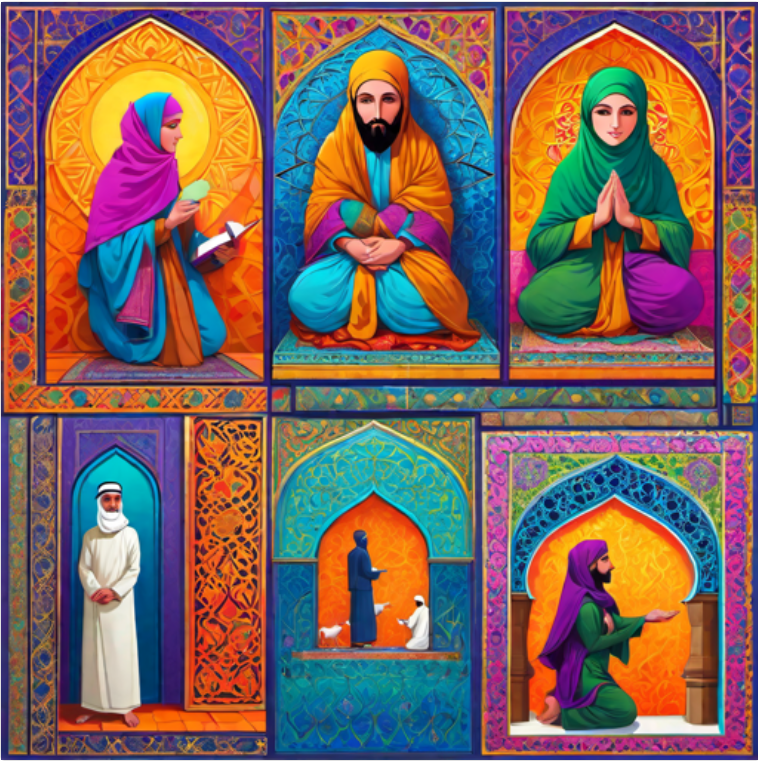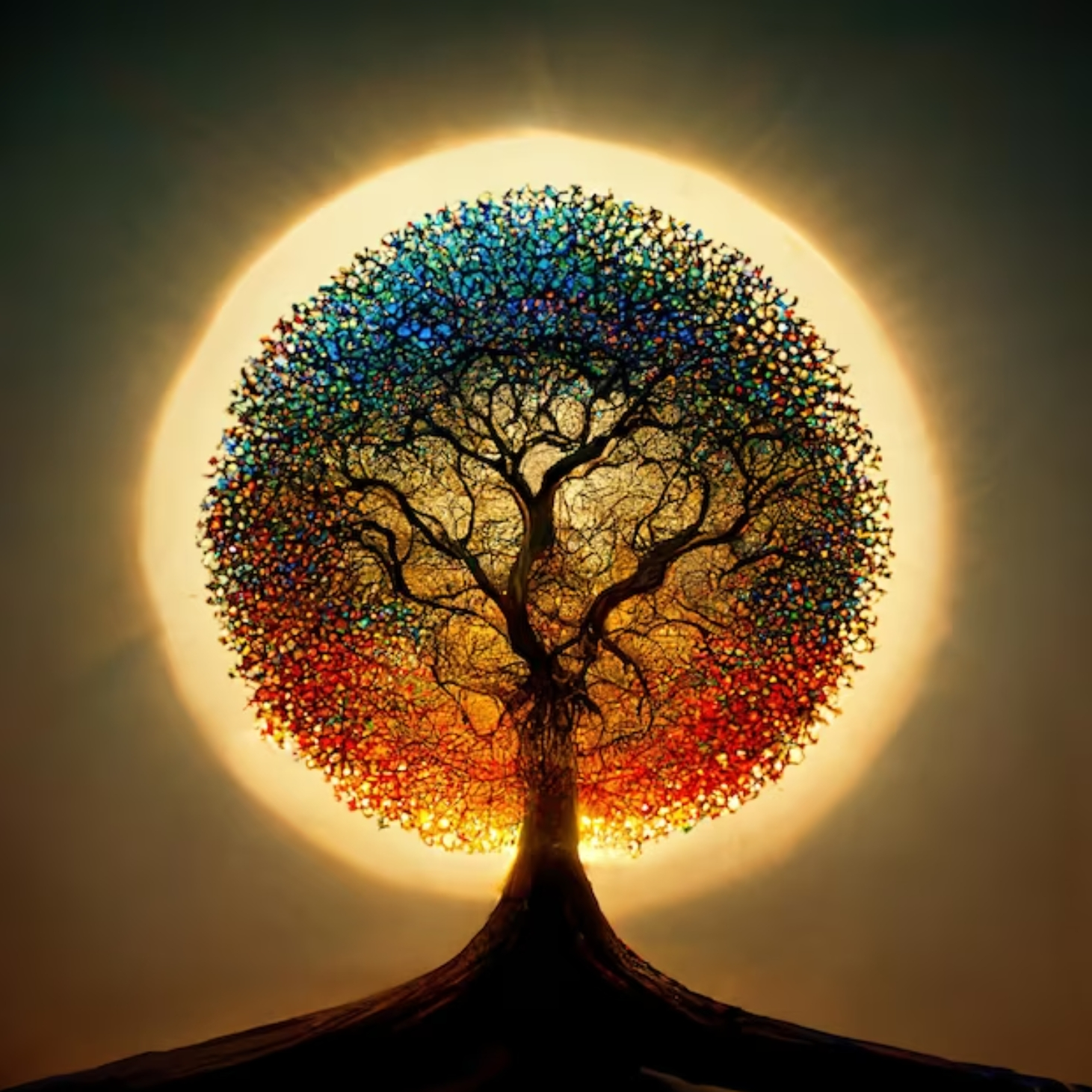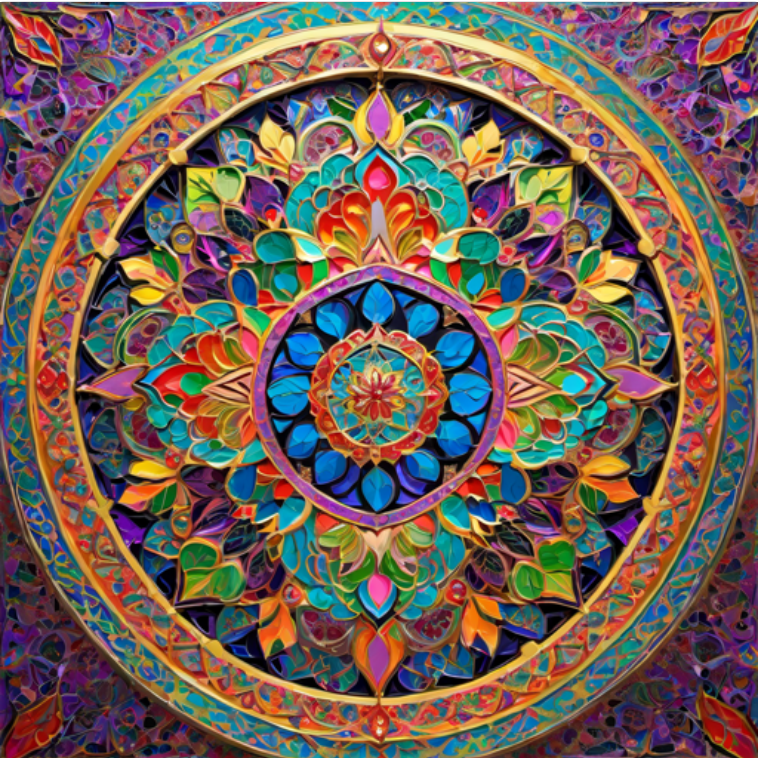[ENGLISH Below - click here]
Privilèges
cléricaux, ou spiritualité
véritablement libératrice ?
Y a-t-il
une responsabilité des croyant-es dits
« alternatifs »
Pour le
dire autrement, comment cette nouvelle génération
de citoyen-nes engagé-es
mettent-ils en œuvre la déconstruction de la
« starification » de
leaders religieux qui ne sont progressistes qu’en
façade, mais qui en réalité
ont fait de leur fonction religieuse et communautaire un moyen de
subsistance
personnelle et parfois familial, afin de gagner leur vie par le biais
de
réseaux associatifs de plus en plus complexes, voir opaques,
plutôt qu’un
véritable outil de libération pour le plus grand
nombre de leurs frères et
sœurs dans la foi.
En ce qui
concerne les musulman-es, l’objectif premier de cette
multitude de réseaux associatifs
est-il d’accroître une visibilité
citoyenne et une coordination au plus haut
niveau de ces activistes pour les droits humains ? Ou bien,
est-ce là
simplement le moyen pour une minorité d’attirer
des fonds internationaux, de la
part de sponsors qui aujourd’hui affirment clairement leur
volonté de soutenir
sur le long terme, en particulier des féministes et des LGBT
Plus
particulièrement, en ce qui concerne les
communautés arabo-musulmanes et après
avoir appliqué les études
de genre
Nous
aimerions décrire ici plus précisément
encore le modus operandi de
l’action subversive
L’objectif
premier de cette confédération étant
de soutenir les LGBT musulman-es dans leur
émancipation et leur élaboration d’une
théologie islamique alternative,
queer, en insistant pour certains
d’entre eux sur le fait que le Prophète des
musulmans – exemple vivant de ce
que doit être l’éthique islamique selon
tous les musulman-es – aurait dit
ceci : « l’islam
a
commencé étranger/ queer et il finira
par redevenir étranger/ queer
La question
est de savoir si ces intellectuel-les et théologien-nes
musulman-es
alternatifs, afin de contribuer à la libération
de ces individus doublement
minoritaires et doublement discriminés, destinent leurs
actions en Europe, en
Amérique du Nord mais de plus en plus dans la
région MENA
Ce type de
processus d’institutionnalisation
pyramidal se produit également chez des
chrétien-nes, même dans des contextes
labellisés
« progressistes » ou faisant
référence au concept de
« communautés
de base »
Tout
l’intérêt d’une
démarche
intellectuelle
« prolétaire », au
sens chomskyien du terme
Il y a un
proverbe juif qui
dit : « L’étude
la Torah, sans
travail manuel, mène à
l’hérésie »
Nous pensons
qu’il serait
injuste de penser que les croyant-es progressistes et inclusifs soient
tenu-es
directement responsables de l’apparition de groupes religieux
intégristes de
par le monde. Pour autant, ces derniers réagissent selon
nous directement aux
politiques d’ouverture communautaires, populaires ou
gouvernementales :
qu’il s’agisse de mouvements civiques, depuis la
base, pour l’ouverture du
droit au mariage au plus grand nombre en Europe, ou de
révolutions démocratiques
au sein des sociétés arabo-musulmanes. Ainsi, les
croyant-es progressistes ont
à répondre devant l’Histoire de leurs
actions futurs afin de contrecarrer le
dogmatisme clérical d’où
qu’il vienne, désormais de manière
coordonnée et
au-delà des rivalités politiques ou
interpersonnelles, et afin de consolider
des mouvements humanistes émergents, immanents, depuis
l’intérieur des
communautés de croyant-es en Europe ou ailleurs.
Afin que les
jeunes
générations de musulman-es ne se
détournent plus de la voie spirituelle
proposée par l’islam au profit
d’idéologies
« fascisantes », nous
pensons que c’est aux nouvelles
générations de croyant-es, sans plus attendre,
et en accord avec ce que Jürgen Habermas qualifie de
« bien-être » du
plus grand nombre

Clerical privileges or truly liberating spirituality?
Sociological and interfaith perspectives about alternative monotheistic traditions.
Is
there a responsibility of
« alternative »
To
put it another way, how this new
generation of engaged
citizens
will implement the deconstruction
of religious leaders "stardom",
beyond a progressive façade of individuals who make of
their community
function
a personal
and sometimes
familial religious livelihood to
earn a living, thanks
to NGO complex, sometime opaque, networks;
rather
than a true
tool of liberation for the
majority of those amongst their
brothers and
sisters in faith.
As far as the muslims are concerned, is the primary objective of this multitude of associative networks to increase citizen visibility and coordination at the highest level of these activists for human rights? Or, is this simply the way for a minority to attract international funding from sponsors who today clearly state their desire to support the long term, especially feminists and LGBT+ causes [4] from within communities of believers? Do these so-called progressive religious leaders want to impose a new form of dogmatic imamat, just as these imams of the first centuries of Islam replaced the authentic "sharia" [5] with a partisan "fiqh" [6]? multiple shiisms? It seems essential to us to affirm our unconditional and anarchist support [7] for the self-definition and self-determination of each individual, without any particular submission to any despotic "hierarchy" whatsoever.
More
specifically with
regard to Arab-Muslim
communities,
and after applying gender studies
to the field of Islam since the 1990's,
several imams
who call themselves "progressive"
were designated by their communities to embody a universally
inclusive
spiritual practice, beyond all
forms of discrimination. These
communities
often founded
national
associations and international networks
to discuss together, and democratically,
their common values. One of these international
networks, whose action
essentially pays off in
Europe and Africa,
is the
Islamic and
inclusive confederation
CALEM
We would like here to describe more precisely the
modus operandi of the subversive action
of these alternative muslims which is sociologically quantifiable.
For example, progressive, feminist, inclusive, human rights
activists gathered in Paris on the weekend of November 17, 2012, for
the three-day annual conference organized by the CALEM confederation.
The latter works to accept the diversity of sexual
identities and gender orientations within Islam. It
is an organization that claims to be secular and apolitical,
independent of all financial sponsors, of any kind of ideology, and is
not subject to any religious authority whatsoever.
The question is whether these alternative intellectual and Muslim theologians, to contribute to the liberation of these individuals and doubly discriminated minority (as LGBT or women, and Arab-Muslims), intending their actions in Europe, North America but also in MENA (Middle East North Africa) and Sub-Saharan Africa, to "reform" Islamic dogma [9]? Yet this is the speech that we receive from "European radicals", such as Tariq Ramadan. When in reality, they make the most clerical norms of Islam to the European context.
This
type of
pyramidal institutionalizating
process
also occurs among Christians,
even in situations labeled
"progressive" or referring
to the concept of
"base/grassroot communities",
amongst which ecclesiastical hierarchies
still too
often confuse merit and
ministry,
emancipatory mission. For
example, when asked
to future priests (pastors)
to give priority to quantitative considerations (number
of believers recruited,
amounts of money raised, etc.)
as
a condition of their
potential ordination.
It's like
sending someone
without a degree, before officially appoint him/her to the
post of professor, only if the
majority of his/her
students were able to
get their degree.
The
whole point of
a "proletarian" intellectual approach, according to the chomskyian
understanding of the term, is
to highlight the injustice
of any crossed
discrimination including within our own communities where most of us
stay blind to them. This
blindness is often due to
clerical privileges,
political or personal interests without awareness of what should the
"best interests" of all human beings, as described by ethicists from
Antiquity to the
Enlightenments of the nineteenth century. This kind of ethical
blindness
about any form of despotic hierarchy is
du, we believe,
to extreme interest
thereon to quantitative
aspects of
our ministries.
There
is a
Jewish proverb which says: "The
study of the Torah, without manual
labor, leads to
heresy."
This tradition can in
our view be mapped to
one of the principles of the ancient
Christian reform
which stipulates that Ecclesia
semper reformanda
- "Church must reform itself,
constantly". Thus, will these
imams, priests,
pastors
and rabbis affirming they are
inclusive, progressive, sometimes
reproduce clerical elitism
as defined
by
the sociologist Pierre
Bourdieu? Will
they use their social
position within
their respective
communities as a source of
privilege, and possibly
as a financial pension? Will
they rather encourage new
generations,
in a proactive and democratic manner,
to perpetually
question
institutionalized and bourgeois
clericalism?
Parviendront-ils/elles,
comme
ils/elles l’affirment le plus souvent, à
déconstruire sur le long terme un
dogme religieux qui sert d’idéologie fascisante
à des intégristes de plus en
plus visibles dans la sphère publique?
We think it would be unfair to think that progressive and inclusive believers are held directly responsible for the emergence of fundamentalist religious groups around the world. However, in our opinion, they react directly to community, popular or governmental policies of openness: whether they are civic movements, from the ground up, for the opening of the right to marriage to the greatest number in Europe, or democratic revolutions within Arab-Muslim societies. Thus, progressive believers have to answer in the history of their future actions in order to thwart clerical dogmatism from wherever it comes, now in a coordinated way and beyond political or interpersonal rivalries, and in order to consolidate emerging, immanent humanist movements from within communities of believers in Europe or elsewhere.
So that the younger generations of Muslims do not turn away from the spiritual path proposed by Islam in favor of "fascist" ideologies, we believe this new generation of believers must not delay, and in accordance with what Habermas calls " welfare of all human beings, take control of their destiny by an active and democratic reform of social representations related to all monotheistic spiritual traditions.



